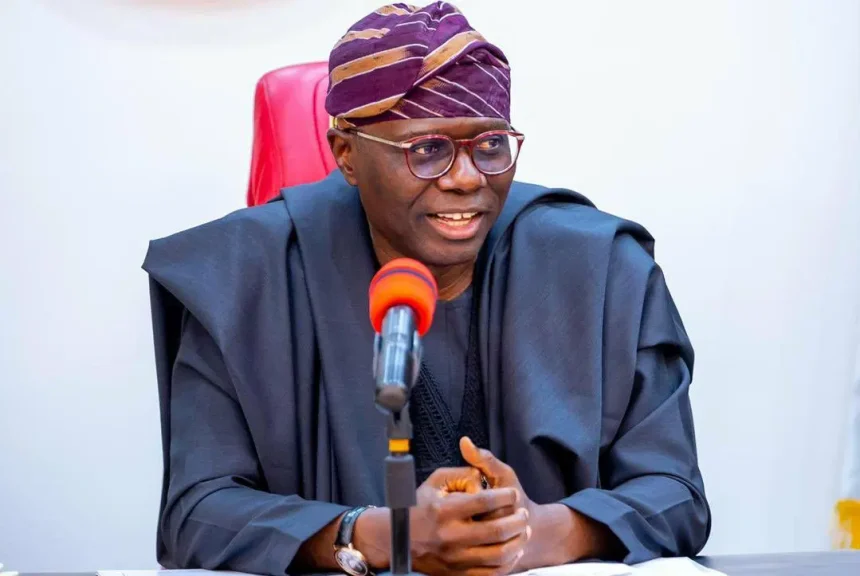The Vice-Chancellor (VC), Lagos State University of Education (LASUED), Prof. Bilkis Lafiaji-Okuneye, on Monday, said that no teacher in the state earned less than N150,000.
Lafiaji-Okuneye disclosed this during her welcome address, in commemoration of the 2025 World Teachers’ Day, held at the university’s campus, Ijaniki, Lagos.
The News Agency of Nigeria (NAN) reports that the theme of the programme is “Recasting Teaching as a Collaborative Profession”.
According to her, the quality of the education system in the school is directly proportional to the welfare and professional standing of its teachers.
“When teachers are undervalued, underpaid, and unsupported, the entire educational edifice begins to crack.
“This reality often leads to brain drain, low morale, and a reduced appeal of the profession to bright young minds.
“We must confront this reality head-on, not with despair, but with renewed determination to effect tangible change,” she said.
Lafiaji-Okuneye said that the state had been taking good care of its teachers with a very good salary structure, adding that it could only get better with time.
“We salute your steady commitment, passion, and indispensable role in national development.
While we celebrate you, it will be disingenuous to ignore the persistent challenges that continue to plague the teaching profession in Nigeria.
“Despite your immeasurable contribution, many teachers still grapple with inadequate preparation, poor working conditions, limited access to professional development opportunities, and, at times, a disheartening lack of societal appreciation.
“However, in Lagos State, I can tell you authoritatively that we are building our teachers’ world, and no teacher goes home with less than N150,000 in the state. But we can do better,” she said.
Lafiaji-Okuneye added that the theme was not merely a slogan but a powerful call to action.
“It is a reflection of the evolving demands placed upon everyone and a profound recognition of the synergy required to elevate education to its rightful place.
“In an increasingly complex and interconnected world, the siloed approach to teaching is no longer sustainable. Collaboration, in all its facets, is the key to unlocking the full potential of our educators and, by extension, our students,” she said.
The professor said that for decades, teaching had often been perceived as an individualistic endeavour, confined within the four walls of a classroom.
“However, true excellence in education flourishes in an ecosystem of shared ideas, mutual support, continuous professional dialogue, and collective problem-solving.
“This theme challenges us to break down barriers, forge stronger partnerships, and create a truly interdependent professional community. This is where the theme becomes incredibly powerful.
“Collaboration is not just about sharing lesson plans; it is about building a robust support system, fostering innovation, and collectively advocating for the systemic changes needed to uplift the profession,” she said.
The VC further said that there should be collaboration in three critical areas, one of which was teacher-to-teacher collaboration.
Lafiaji-Okuneye said this involved peer mentoring, team teaching, professional learning communities, and inter-school partnerships.
“The other is school-community collaboration, which engages parents, community leaders, and local industries to create a supportive ecosystem for learning.
“This ensures that education is relevant to community needs and that teachers receive adequate support,” she said.
On teacher-policy maker collaboration, Lafiaji-Okuneye said it remained the most critical aspect for systemic change.
“Teachers, as frontline practitioners, possess invaluable insights into the realities of the classroom and the needs of students.
“Their voices must be heard, respected, and integrated into policy formulation to recast teaching as the respected, collaborative, and rewarding profession it deserves to be,” she said.
She noted that government and other funding agencies should also invest in modern teaching resources and infrastructure.
“The Lagos State Government, in partnership with TETFund and other funding agencies, could allocate 20 per cent of its annual education budget specifically towards upgrading classroom infrastructure.
“This should also provide digital learning tools and establish well-equipped science and technology laboratories in public schools, commencing from the 2026 fiscal year,” she said.
The Guest Speaker, Mr Adewale Gbenga, Professor of Educational Psychology, Institute of Education, University of Ibadan, said there were different types of teachers.
He identified them as beginner, proficient, mentor, and distinguished teachers, adding that each teacher should be able to understand their students.
He also said that there were different levels of collaboration, which included teacher-to-teacher and student-to-teacher collaborations.
Gbenga expained that the benefits of these collaborations included better support for diverse students’ needs and enhanced teachers’ morale, among others.
Present at the ceremony were members of the management and staff of the university.



